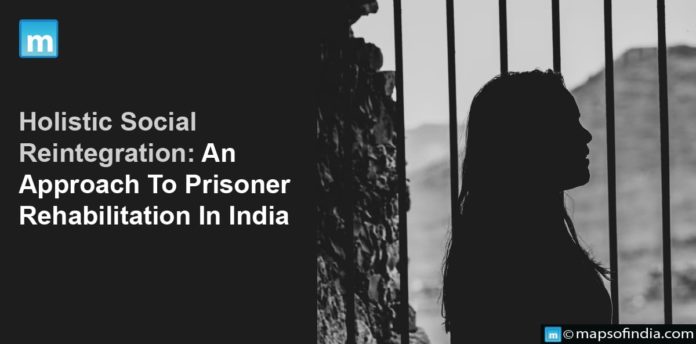The process of assisting those who have been marginalized or excluded from society to rejoin it as contributing members is known as social reintegration. It might be a complex process, but everyone needs to feel like they belong and have a purpose in life. Indian inmates and social rehabilitation go hand in hand. It is a comprehensive approach to recovery for both offenders and convicts, focusing on assisting them in re-establishing their life in society following incarceration. It acknowledges that attending to a person’s physical, mental, emotional, and social needs is necessary for effective reintegration.
Prison can be a very isolating experience. Prisoners frequently lack access to their communities, families, and friends. After they are freed, this may make it challenging for them to reintegrate into society. The process of assisting inmates in adjusting to life outside of jail is known as social reintegration. Although social reintegration is challenging, it is necessary to rehabilitate offenders effectively. By lowering the probability of recidivism and boosting public safety, it benefits society as a whole in addition to the offenders. It is predicated on the knowledge that rehabilitation involves recreating a purposeful life and refraining from crime.
Importance of Social Reintegration
- It brings people from different communities together and, thus, leads to peace and harmony.
- The risk of recidivism is reduced. If the criminals and prisoners succeed in reintegrating, they will likely not repeat their offenses.
- The economy of the country is likely to be benefitted. People who can support themselves with proper jobs will contribute to the economy.
- It also leads to improved public safety. When people are not living in poor conditions and environments, they are less likely to commit offenses.
- It upholds human rights. Everyone has the right to a second chance, and social reintegration helps ensure this right is respected.
Challenges and present situation
One of India’s most important challenges to social reintegration is the stigma attached to criminals and prisoners. Many people believe that ex-offenders are incapable of change and may be discriminated against when they try to find jobs or housing. This stigma can make it very difficult for ex-offenders to reintegrate into society. Another challenge to social reintegration is the lack of resources. Not enough programs and services are available to help former prisoners get back on their feet. This situation is especially true for the rural areas.
Different aspects of social reintegration
- Education and training: Prisoners need to be educated. A lack of education can be one of the reasons for their crimes. Also, education and training will help them find new jobs to support themselves.
- Mental health treatment: Many prisoners have mental health problems that must be addressed. This will help them get mentally strong for all the upcoming challenges in reintegration.
- Substance abuse treatment: Substance abuse is a significant problem among prisoners because of the stress they face in their field of work. This treatment will help them overcome their addiction to lead a sober life.
- Family support: Prisoners need the support of their families and friends to be successful in reintegration. Family support programs will help them stay connected with their loved ones and family throughout their journey on this new path.
- Community support: Prisoners need to feel welcome and supported by their communities. This will motivate them to re-enter societies with a new beginning.
Focusing on these steps can help create a more just and humane criminal justice system in India that better supports the recovery of prisoners and criminals. Prisoners have the right to be reintegrated into society after serving their time.




